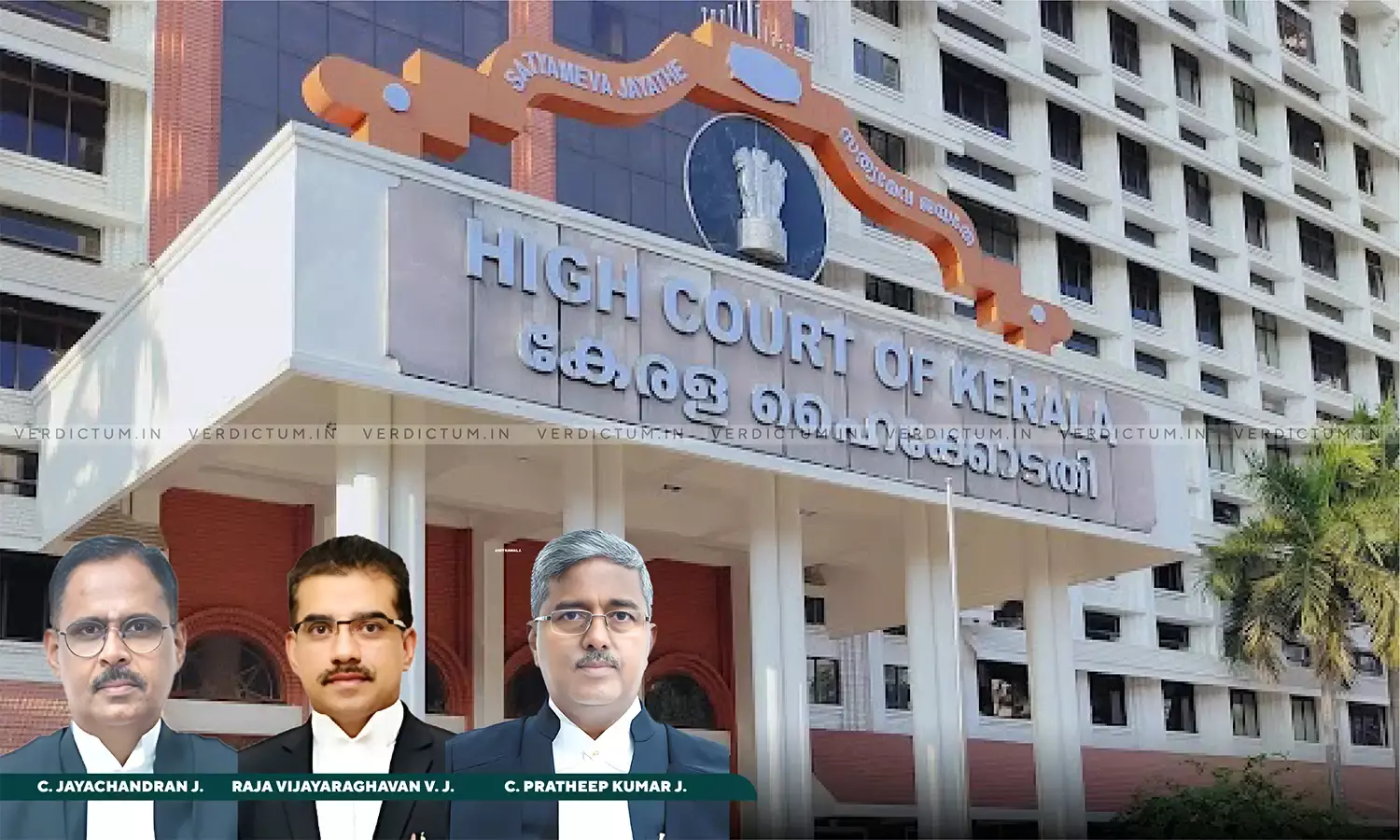Selection Process For Public Appointments Must Adhere To Constitutional Principles; Authorities Can’t Account For Future Vacancies In A Different Recruitment Year: Kerala HC
The Kerala High Court observed that the selection process for public appointments must adhere to the constitutional principles and the authorities cannot account for future vacancies in a different recruitment year.
The Court observed thus in an appeal placed before the Full Bench following a reference made by a Division Bench of the Court.
A Bench comprising Justice Raja Vijayaraghavan V., Justice C. Jayachandran, and Justice C. Pratheep Kumar held, “The constitutional principle, as upheld by the Apex Court, mandates that the selection process for public appointments must adhere to the guarantees of equality under Articles 14 and 16 of the Constitution. The selection process must be reasonable and align with the advertised number of posts. While authorities may consider actual and anticipated vacancies (those likely to arise due to promotions, resignations, or deaths), they cannot account for future vacancies in a different recruitment year. Only vacancies within the current selection or recruitment year, whether actual or reasonably anticipated, can be included in the notification.”
The Bench added that the constitutional principles would override any statutory provisions to the contrary.
Senior Advocate V.P. Seemanthini and Advocate M.R. Anison appeared on behalf of the appellants while Advocate T.K. Vipin Das appeared on behalf of the respondents.
Facts of the Case -
The respondent ran a High School wherein two vacancies of Upper Primary School Teachers arose. The Managing Committee of the respondent issued a notification in 2019 for filling up the said vacancies. Pursuantly, the candidates ranked 1 and 2 in the select list were appointed against the notified vacancies. The Headmistress of the School issued a letter requesting the Administrator to keep the select list in operation so as to fill up the future vacancies from the said list with a view to ensure that there is no disruption of classes for want of teachers. Based on such request, the Committee passed a resolution, deciding to extend the life of select list by one year and to make appointments against future vacancies as well. Later, a vacancy arose on account of the retirement of a teacher and also, three teachers were entitled to be promoted to the Higher Sections of the School.
Resultantly, the Manager issued an order appointing the candidates who were ranked 3 to 5 in the select list. Even before the selected candidates joined duty, the Committee resolved to revoke their appointment. According to the Committee, the appointments of the candidates in excess of the notified vacancies were made without their knowledge and permission. Hence, separate writ petitions were filed before the Single Judge, challenging the cancellation of appointments. It was conclusively held that the act of the respondents in having issued appointment orders from a ranked list that had already expired by extending the list was thoroughly improper. By holding so, the writ petitions were dismissed upholding the order of revocation. Thereafter, the Division Bench allowed the appeal and quashed the order. Hence, the appeal was placed before the Full Bench following a reference made by the Division Bench.
The High Court in view of the facts and circumstances of the case, noted, “Section 7 of the High Court Act (Kerala) says that when a question of law is referred to a Full Bench, the Full Bench may finally decide the case or return it with an expression of its opinion upon the question referred for final adjudication by the Bench which referred the question. As we have dealt with the entire issue, we thought it fit to decide the case rather than return it to the Division Bench with our opinion.”
The Court said that the Single Judge, on the basis of the materials available, rightly noted that the notification was issued for filling up two vacancies and the ranked list was prepared pursuant to the notification for filling up the notified vacancies alone.
“The fact that a decision had already been taken on 31.12.2019 to the effect that the ranked list would be operated only for the purpose of filling up the notified vacancy was also rightly noticed. As the advertisement was for a specific number of posts, the Devaswom could not have appointed more candidates than advertised, even if a larger select list had been prepared. Furthermore, in the case on hand, no policy decision had been taken with due and careful consideration of the facts and circumstances”, it remarked.
The Court further said that the request of the Headmistress to keep the select list active to fill future vacancies and avoid class disruptions due to a lack of teachers does not constitute a rare and exceptional circumstance or an emergent situation, fulfilling the mandate of law.
“We are unable to accept the declaration of law made by the Division Bench in the judgment dated 7.7.2021 in W.A. No. 488 of 2021 (Reema R V Guruvayoor Devaswom and Others)”, it concluded.
Accordingly, the High Court dismissed the writ appeal.
Cause Title- Bindu B. Kumar & Anr. v. Guruvayur Devaswom & Ors. (Neutral Citation: 2024:KER:66890)
Appearance:
Appellants: Senior Advocate V.P. Seemanthini, Advocates M.R. Anison, V. Bhargavi, and P.A. Rinusa.
Respondents: Advocate T.K. Vipin Das




